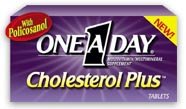 Results of a study appearing in this week's Journal of the American Medical Association (JAMA)1 will not bring joy to supplement manufacturers:
Results of a study appearing in this week's Journal of the American Medical Association (JAMA)1 will not bring joy to supplement manufacturers:Effect of Policosanol on Lipid Levels Among Patients With Hypercholesterolemia or Combined Hyperlipidemia
German researchers found that policosanol, at varying doses, was no better than placebo at improving lipid levels.
The study used excellent research protocol. It was randomized, placebo-controlled, double-blinded, parallel-run, with a pre-baseline wash-out period. Since it was conducted in Germany (which unlike the US does not maintain a trade embargo with Cuba), it could access the very same sugar-cane-derived policosanol used in the Cuban studies which found it effective for lowering cholesterol. The sample size, n=129, wasn't large, but probably big enough to deliver significance.
So why, given the impressive body of evidence in favor of policosanol did these researchers find otherwise? Some considerations:
- The bulk of previous research was supported by a Cuban company with vested interest in policosanol sales.
- Policosanol may be more effective in select populations. From the JAMA study: "Ethnic and nutritional differences between European white and Latin American patients might play a role."
- Absorption of the researchers' formulation of the policosanol was not verified. A similar Dutch study reported that most of their orally administered policosanol went out with the stool.
Update: November 15, 2006 - Another thumbs-down study.
No comments:
Post a Comment